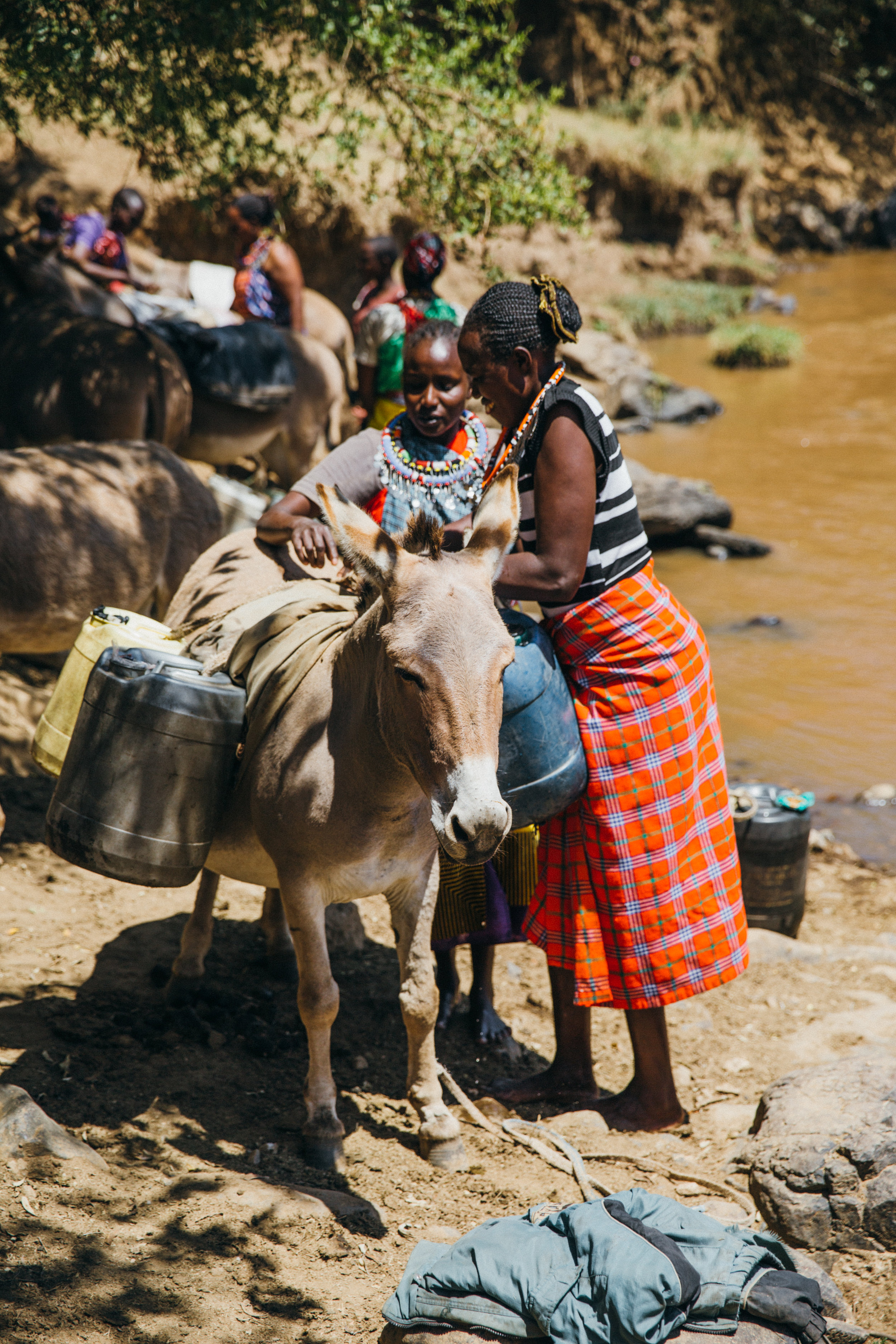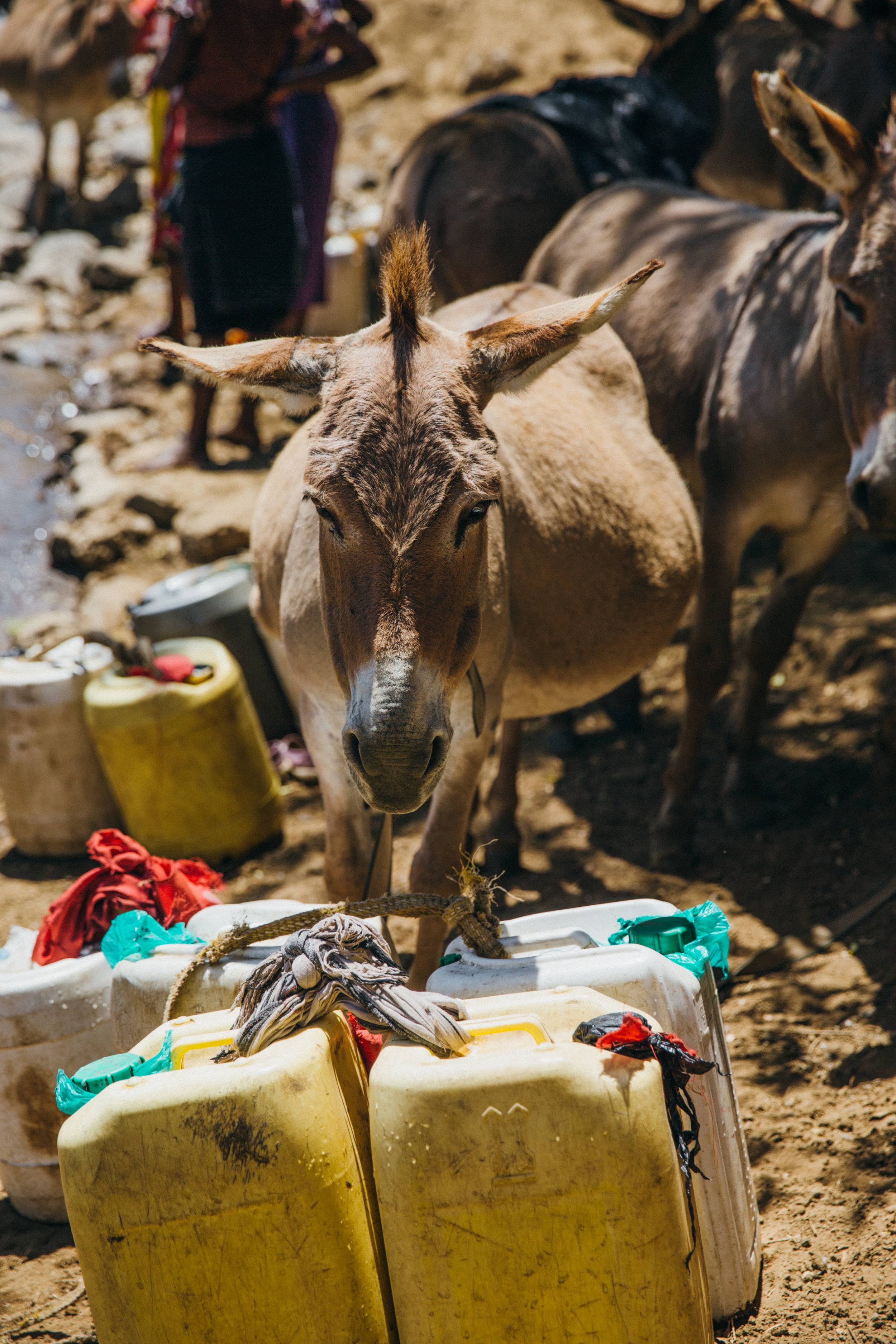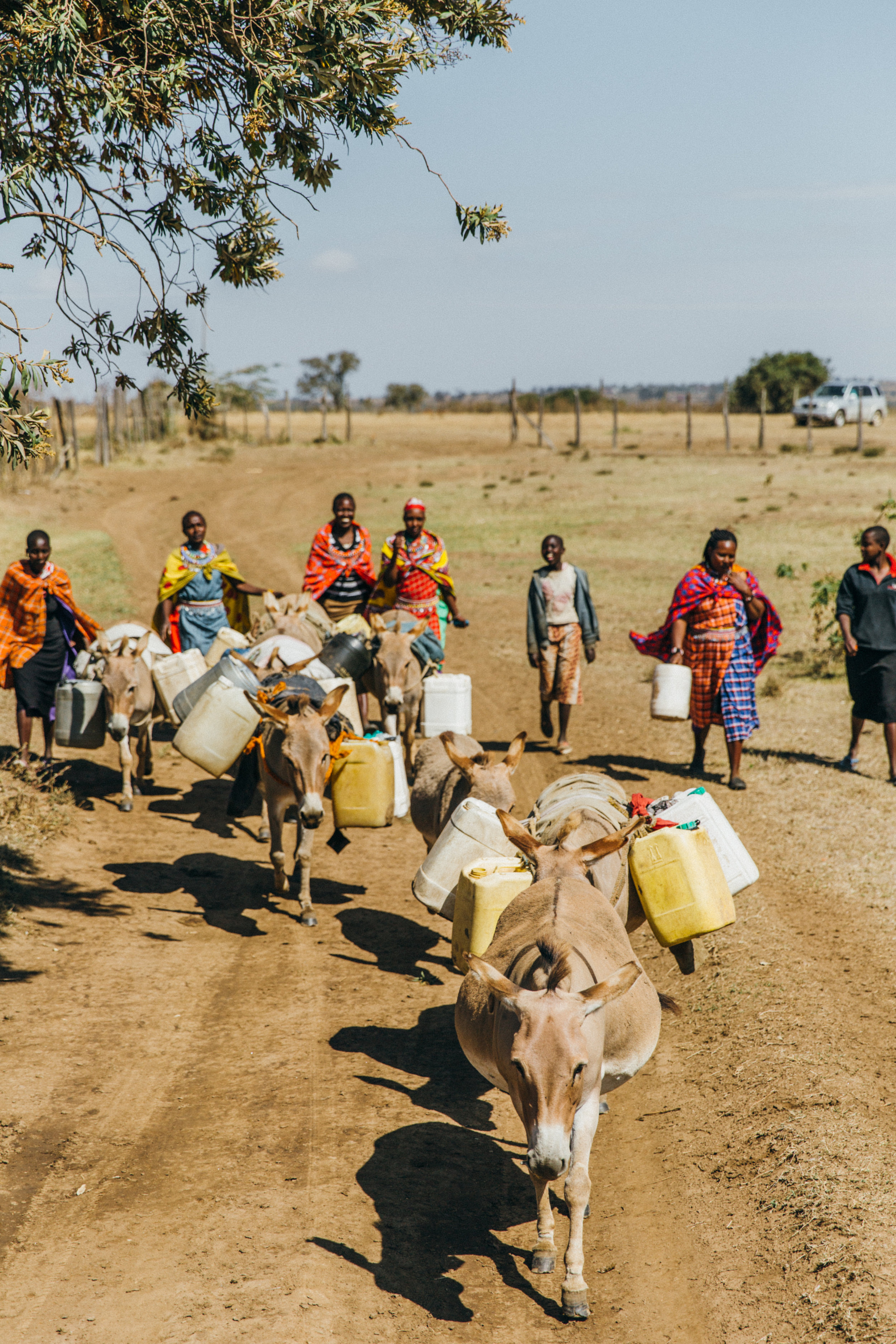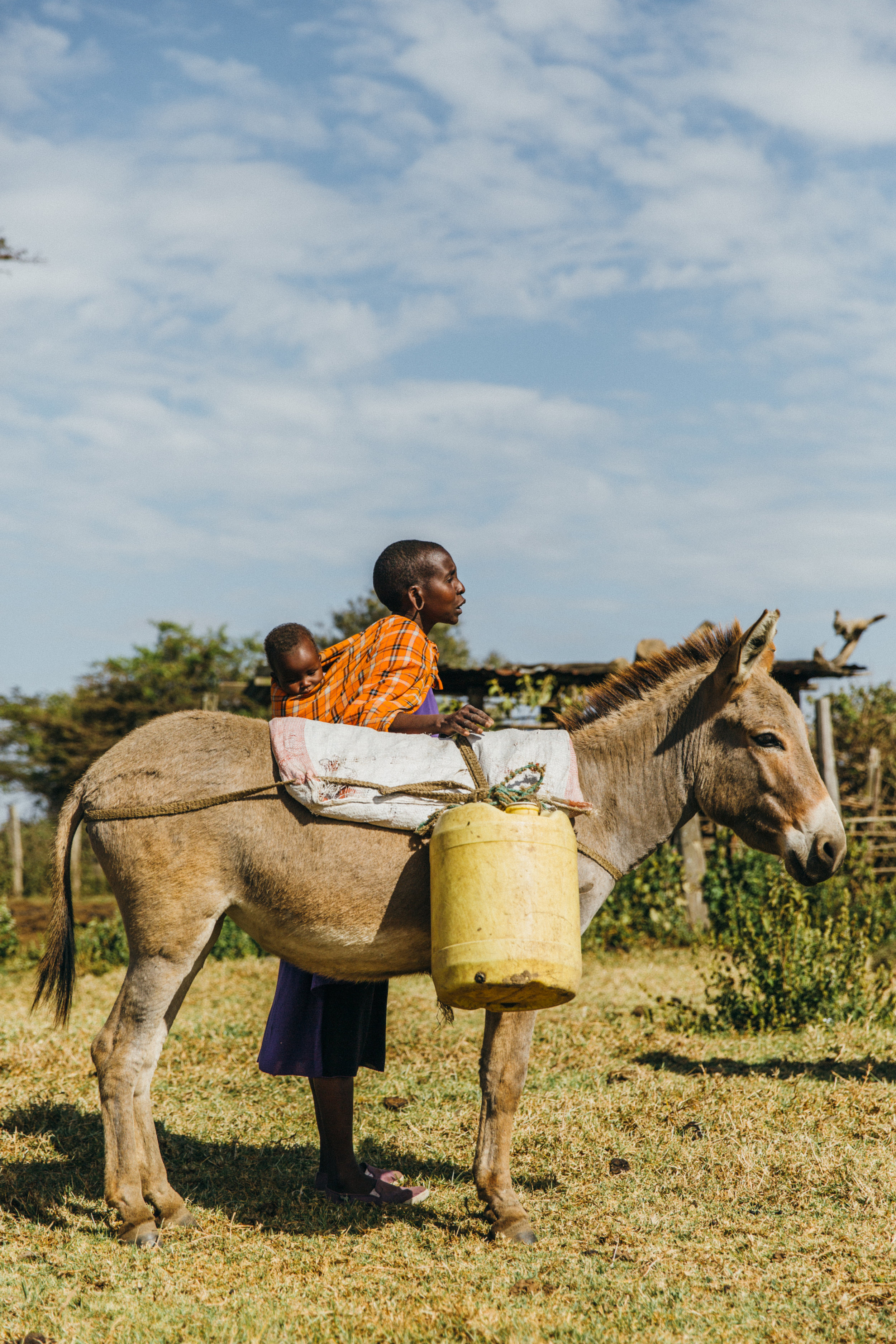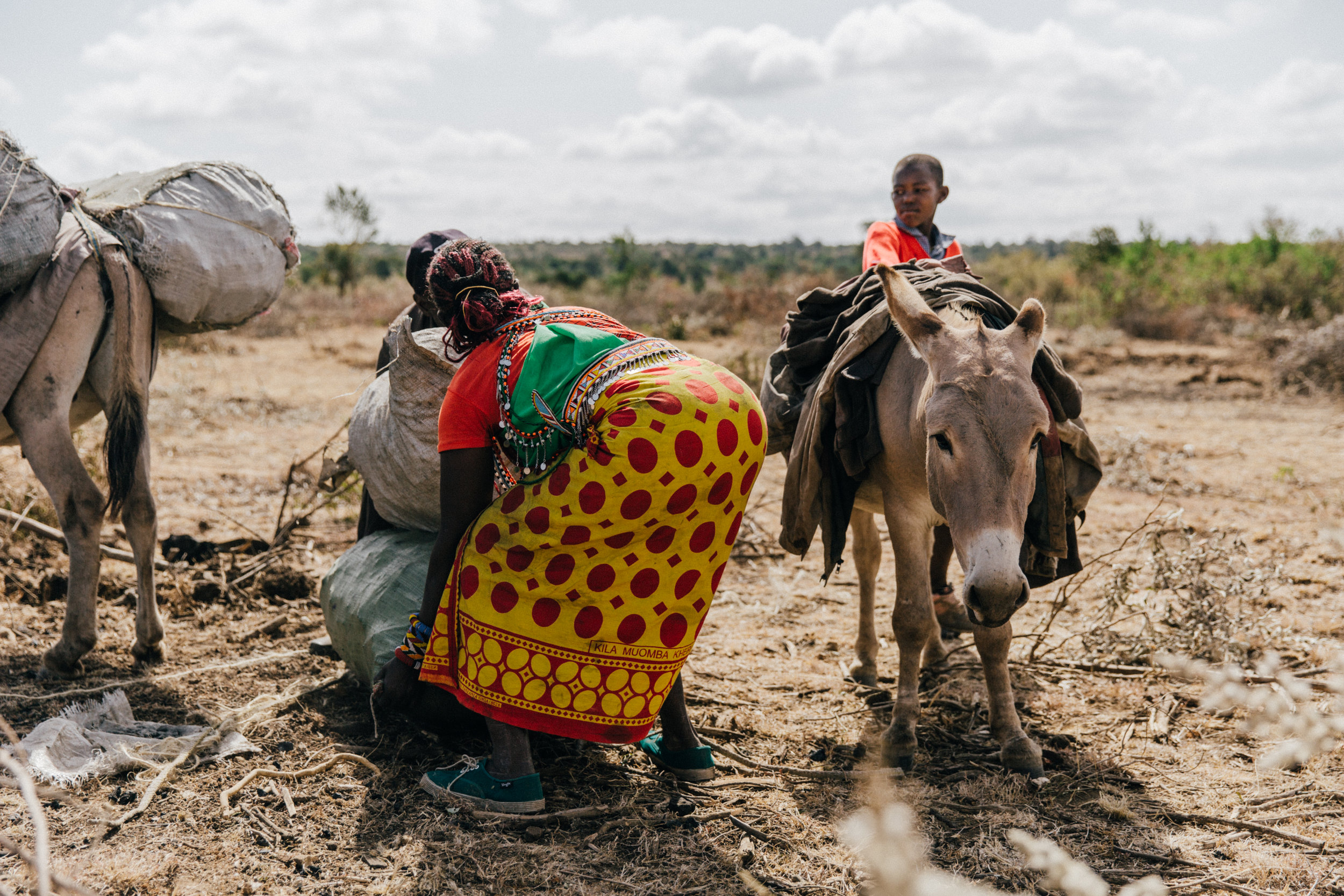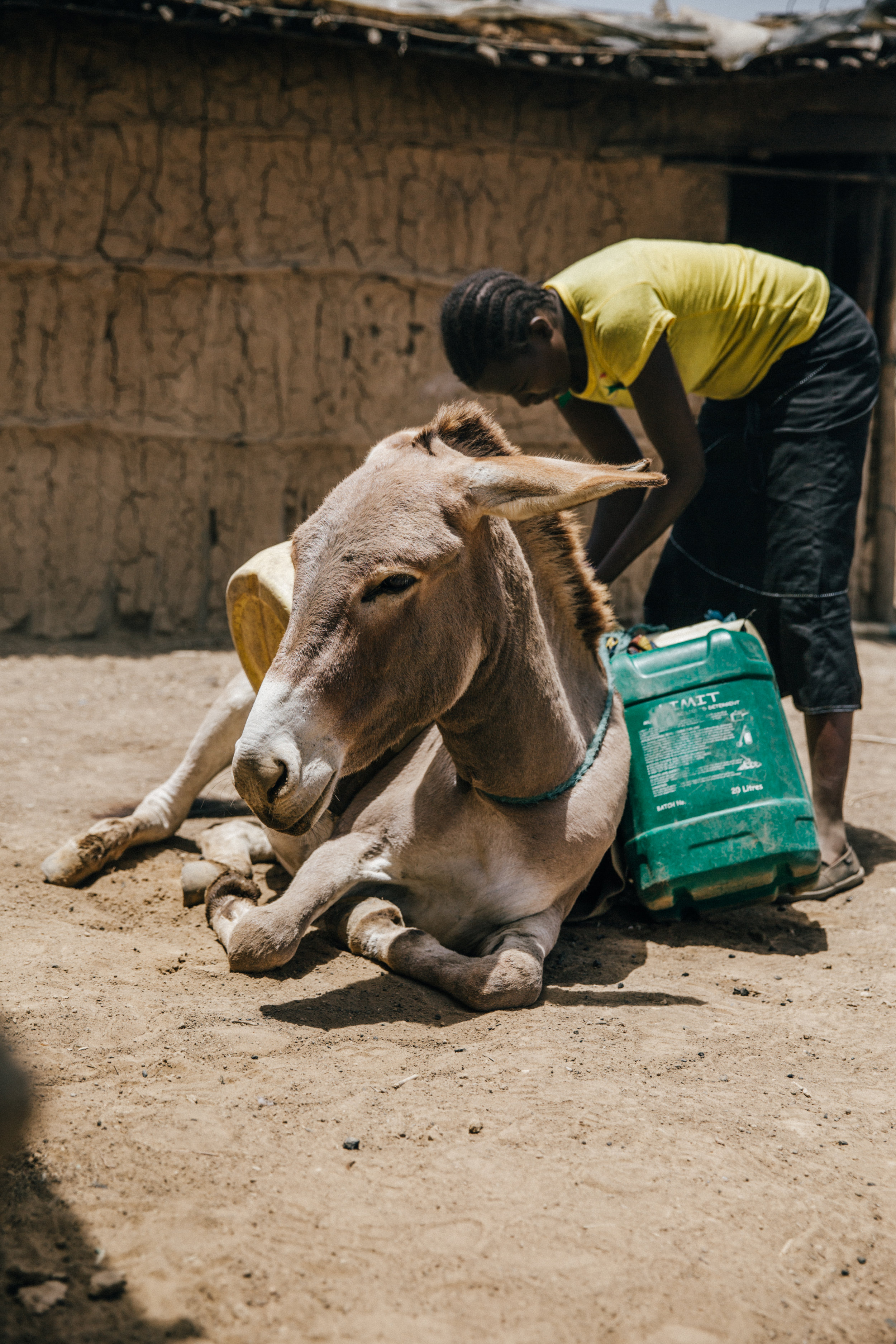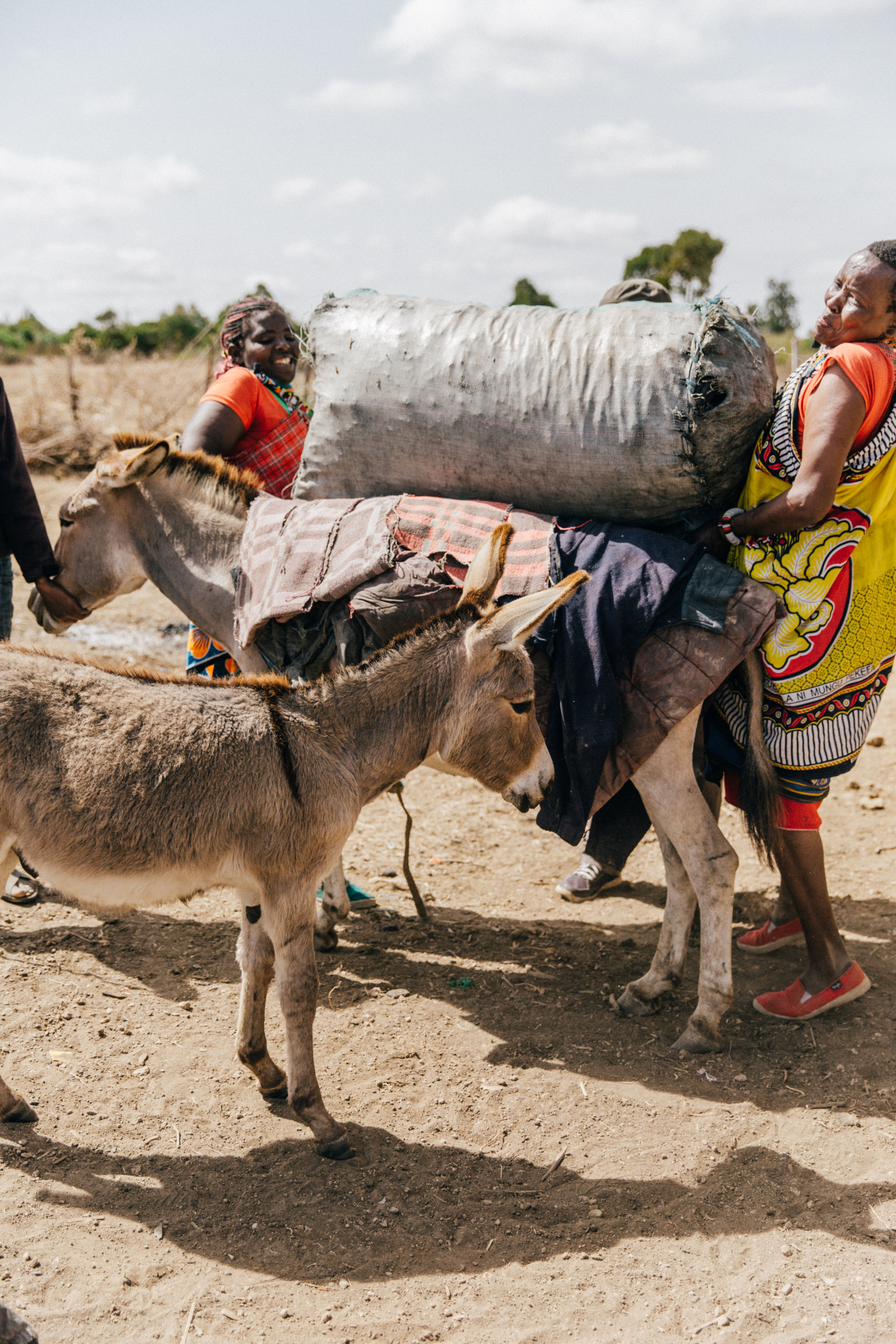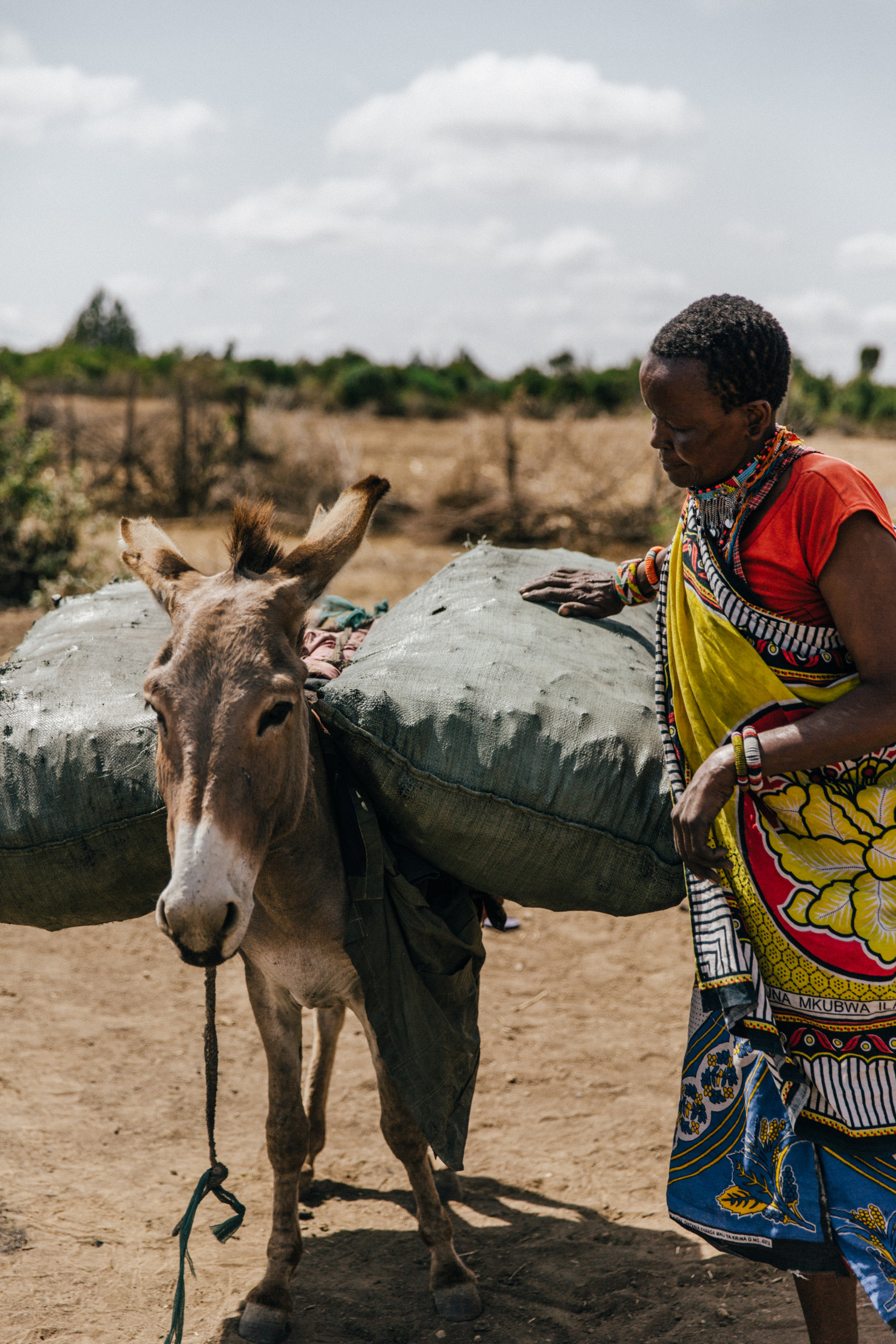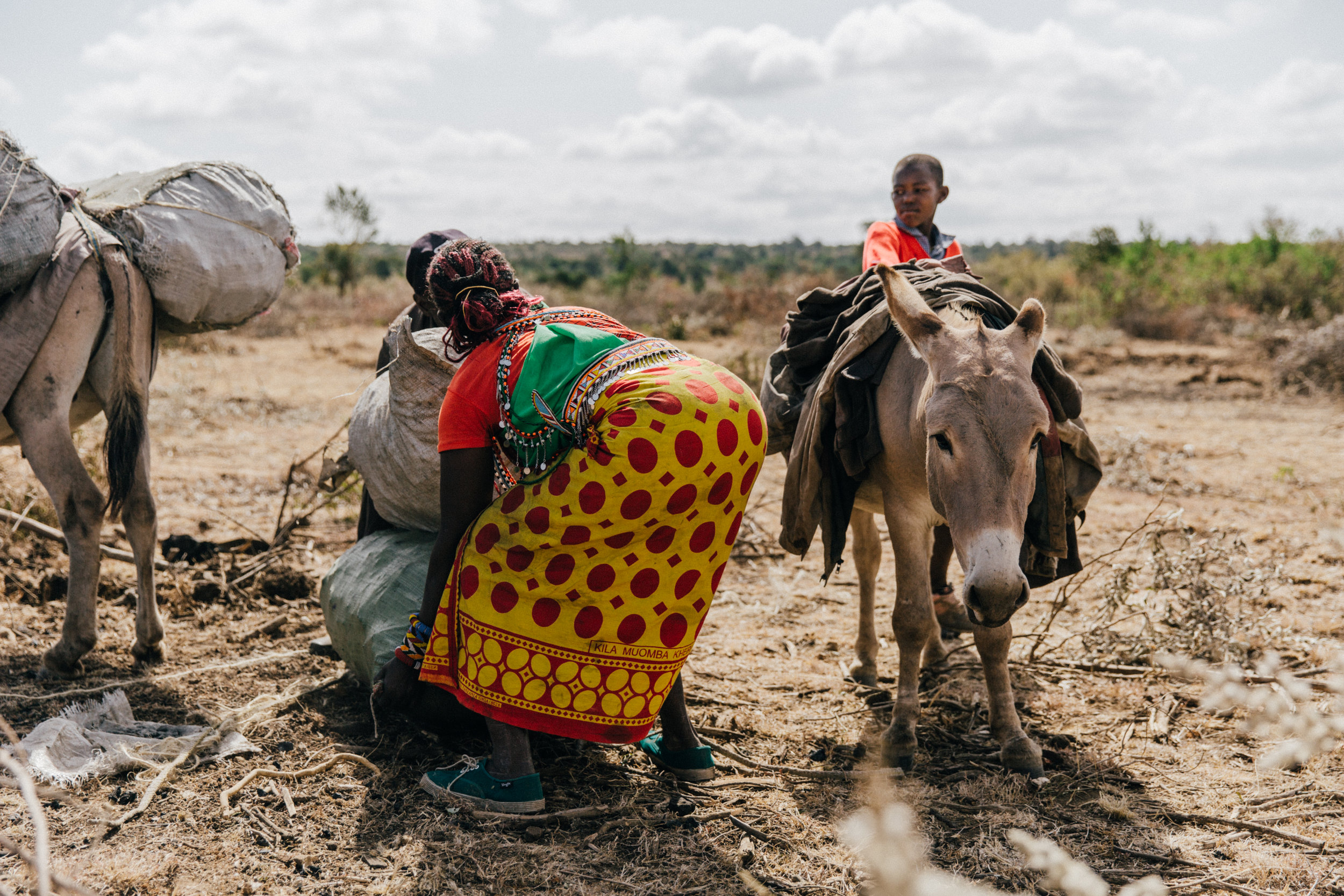COMPLETED
Brooke USA continues working on improving the lives of donkeys and strengthening women donkey owners’ livelihoods. We concluded our final year of funding in Kenya, and we are delighted to report that we have granted, over $350,000.
The main equine population in Kenya is made up of donkeys, accounting for around 1.8 million animals. Agriculture is the single most important sector in the Kenyan economy and contributes approximately to 25% of GDP. More than three quarters of the population live in rural areas and derive their livelihoods, from agriculture. Subsistence farming is the primary - and often the only - source of livelihood for about 70% of rural women. In Kenya, the use of donkeys by women is primarily confined to household chores although some women use their animals for income generation work such as collecting and selling water, sale of manure, animal feed, seeds and fertilizers and taking milk to the cooperatives. Female equine ownership and use is most prevalent in rural settings although men have control over the family assets.
Working equine animals play a critical role in supporting women and their families. They perform multiple functions which relate directly to the various roles of women. Donkeys helps women through the reduction of labor and the drudgery of household chores; income generation; and social status and health benefits.
The Food and Agriculture Organization of the United Nations (FAO) recognizes that working equines play a fundamental role by lessening women’s work burden and improving the lives of women and their families. Women rely on working donkeys for support in fulfilling their many roles within the household and the community. This includes help with domestic work, providing an income for women and their families and enabling savings by providing transport for goods, water, firewood, animal feed, manure and other produce. Their role also extends to the social sphere of women’s lives, as they raise women’s status in the community and provide them with opportunities to make their voices heard and to access loan and business opportunities.
When a woman loses her donkey or her donkey gets sick, the impact is economically devastating to the family. This proves the importance of good equine welfare, as working donkeys in poor health, be it because they are overworked, suffer wounds, foot problems, or are not provided with adequate harnessing and access to nutritious food, shelter and water, are impaired in their ability to benefit women optimally. Therefore good equine welfare is not a luxury but a necessity for women and their families.
Despite women’s role in managing and keeping working equine animals, there is little or no access for women to education and training on equine health and welfare, including husbandry practices and diseases. Few services are available outside of what Brooke offers to increase and strengthen capacity and skills in working equine welfare amongst communities. Women continue to have strong interest and motivation in getting information and training that would enable them to better look after their animals and tend to their healthcare needs. Women in Kenya continue to be very interested in attending training and being engaged in equine welfare related activities.
Funds raised by Brooke USA directly impacts Brooke’s ability to provide training and support to women in Kenya, not to mention that children receive an education when women own donkeys.
“The donkey affects each and every aspect of my life as a woman. On a typical day the donkey fetches water, which I use to do the laundry, to do the dishes, to clean the house and for bathing. It also fetches sawdust which I use to cook all meals, then I hire it out and it brings in income on a daily basis that I use to buy flour for the evening meal. In other words, I eat, drink, dress, live off the donkey and more so as a woman and one not employed, I work hand in hand with the donkey. Basically the donkey is like me but to plainly put it, the donkey is me.”
“I am lacking words to fully explain how grateful I am and how really my life depends on donkeys.”




